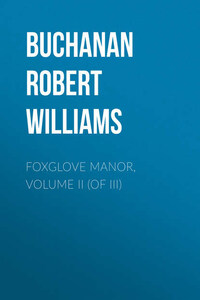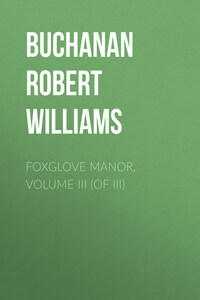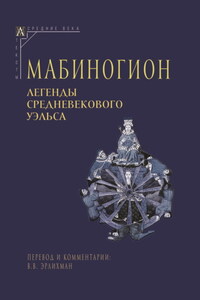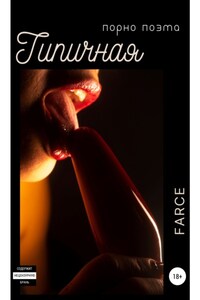CHAPTER I. ST. CUTHBERT’S
As the sweet, clear voices of the surpliced choristers rose in the closing verse of the hymn, and the vicar, in his white robe and violet hood, ascended the pulpit steps, old Gabriel Ware, sexton and doorkeeper of St. Cuthbert’s, limped across the pavement and slipped into the porch, as his custom was at sermon-time on Sunday afternoons.
He waited till the singing had ceased and the congregation had settled in their pews; and while he listened to the vicar announcing his text – “For in Him we live, and move, and have our being” – he fumbled in the pockets beneath his black gown of office, and then limped noiselessly out into the sunshine, where, after a glance round him, he pulled out a short clay pipe, well seasoned, filled it with twist, and began his usual after-dinner smoke.
It was a hot, shimmering July afternoon, and it was much pleasanter to sit out of doors on a tombstone, listening to the vicars voice as it came though the dark lancets like a sound of running water.
Half a mile or so away, nestled in trees, was the village of Omberley, with its glimpses of white walls and tiled or slated roofs. Then there were soft, hazy stretches of pasture, with idyllic groupings of cattle and sheep and trees. The fields of wheat and barley, turnips and potatoes, lay out idle and warm, growing and taking no care, and apparently causing none. The sight and smell of the land filled Gabriel with a stolid satisfaction at the order of nature and the providential gift of tobacco.
There was but the faintest breeze stirring, and it wafted all manner of sweet odours and lulling whispers about the graveyard. Everywhere there was evidence of a fervent throbbing vitality and joyousness. The soft green turf which spread all round the church to the limits of the churchyard, here billowing over a nameless grave, here crusting with moss the base of a tombstone or a marble cross or a pillared urn, here edging round an oblong plot brilliant with flowers and hothouse plants, – the very turf seemed stirred by glad impulses, and quivering with a crush of hurrying insect life. Daisies and buttercups and little blue and pink eyed flowers danced among the restless spears of grass with a merry hardihood. Laburnums and sycamores stood drowsing in the hot shining air, but they were not asleep, and were not silent, A persistent undertone came from among their shadowy boughs, as if the sap were buzzing through every leaf and stalk. Up their trunks, toiling through the rugged ravines of the rough bark, travelling along the branches, flitting from one cool leaf to another, myriads of nameless winged and creeping things went to and fro, and added their murmurs to the vast, vague resonance of life. A soft, ceaseless whispering was diffused from the tall green spires of a row of poplars which Went along the iron railing that separated the enclosure from the high-road. Blue and yellow butterflies fluttered from one ‘flowery grave to another; the big booming humble-bee went blundering among the blossoms; a grasshopper was: singing shrilly in the bushes near the railing; a laborious caravan of ants was crossing the stony wilderness of the gravel path; a dragon-fly hawked to and fro beneath the sycamores; small birds dropped twittering on cross or urn for an instant, flashed away up into a tree, and then darted off into the fields, as though too full of excitement and gamesomeness to rest more than a moment anywhere. Soft fleecy masses of luminous cloud slumbered in the hot blue sky overhead, and only in its remote deeps did there seem to be unimpassioned quietude and a sabbath stillness – only there and in the church.
Notwithstanding the dazzling sunshine and the heat, the church was cool and dim and fragrant. The black and red tiles of the pavement, the brown massive; pillars and airy arches of sandstone, the oaken pews, the spacious, sanctuary with, its wide, stone steps, affected one with a. refreshing sense of coolness and comfort. The light entered soft and subdued through richly stained glass, for the windows looked, not on familiar breadths, of English landscape glowing and ripening in the July sun, but seemed rather to open into the strangely coloured world of nineteen centuries ago. The blessing of the little children, the raising of Lazarus, the interview at the well with the woman of Samaria, the minstrel rout about the house of the ruler whose little maid lay not dead but sleeping, took the place of the mundane scenes beheld through unhallowed windows. Even the unpictured lancets were filled with leaded panes of crimson and blue and gold. Then there was a faint, pleasant odour of incense about the building, emphasizing the contrast between the mood of nature and the mood of man. St. Cuthberts was floridly ritualistic, and the vicar was one of those who felt that, in an age of spiritual disquiet and unbelief, a man cannot cling with too many hands to the great Revelation which appeared to be daily growing more elusive, and who believed that if the soul may be lost, it may also be, in a measure, saved through the senses. Feigned devotions and the absence of any appeal to the physical nature of man had, he was convinced, drawn innumerable souls into indifference on the one hand, and into Catholicism on the other. If there was a resurrection of the body as well as of the soul, surely the body ought not to be abandoned as a thing accursed, from which no good can come. The vicar encountered no difficulty in realize ing his views of the dignity of flesh and blood at St. Cuthbert’s.










